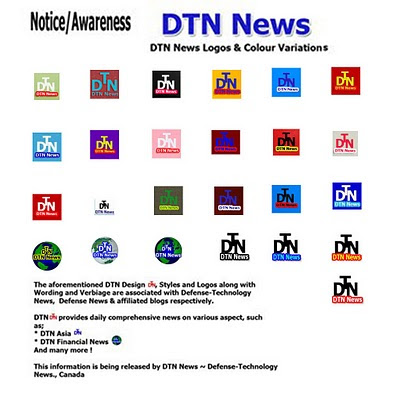Tuesday, July 22, 2008
US keeps Taiwan at arm's length
US keeps Taiwan at arm's length
July 22, 2008: WASHINGTON - The past month has seen some convoluted twists and turns in what seems to be the never-ending saga of Taiwanese arms procurement. In the second half of June it was reported in the Taiwanese media that the Taiwanese government had requested that the US government halt some US$12 billion in arms sales, originally proposed by the George W Bush administration in April 2001. This request by President Ma Ying-jeou's Kuomintang (KMT) administration, which came into office in May, harkens back to its day as an opposition party, when it was responsible for a delay of years for many of the items on the weapons shopping list. Ma's election produced the first KMT president in eight years and demonstrated public dissatisfaction with the pro-independence Democratic Progressive Party (DPP). The return of the KMT gave Beijing the green light to go forward with formal talks on establishing direct flights, economic accords and a potential peace accord. On June 12, the Washington Post reported that in addition to holding up the arms package, senior US officials such as Secretary of State Condoleezza Rice and National Security Adviser Stephen Hadley are holding up the delivery of 66 F-16 C/D Block 50/52 fighter jets for Taiwan, estimated to cost $5 billion, possibly until Bush leaves office. The Post story confirmed what had earlier been reported in Taiwan; that Taiwan's government had privately urged that notifications to the US Congress for future arms sales not be sent in coming weeks as it completes talks with China on launching charter flights and expanding tourism, while Rice and other top officials appeared reluctant to irritate Beijing amid negotiations over North Korea's nuclear program. The US's reluctance is not hard to understand. Given that with Ma Ying-jeou's election as Taiwan's president, Taiwan and China have their first real chance in eight years to improve ties. The United States is worried that a big arms sales package is going to throw a wrench in the works and give China an excuse to object. The notifications to the US Congress would need to be made at least one month before an October lawmakers' break if the sales are to proceed this year. The last time the Bush administration notified the US Congress about potential arms sales to Taiwan was on November 9, 2007, for a Patriot-2 missile deal worth US$939 million. But Taipei wants the newer Patriot-3 missiles. The blanket freeze on the 2001 arms sales package, which includes submarines and PAC-3s air defense missiles, is unprecedented in Taiwan-US relations. Taiwan asked to buy new F-16s last year, but thus far the Bush administration has refused to accept formal paperwork needed to process the request, according to the US-Taiwan Business Council, which represents about 100 companies doing business in Taiwan, including contractors such as Lockheed Martin. The new F-16s would supplement 150 F-16A/B models sold to Taiwan by Bush's father, the first president Bush, in 1992. Joseph Wu, Taiwan's envoy to Washington, urged the US on June 10 to approve the sale of the jets as soon as possible. This, however, would put the Bush administration in an awkward position ahead of the Summer Olympic Games in Beijing in August. Taiwan asked to buy new F-16s last year, but the Bush administration has refused to accept formal paperwork needed to process the request, according to the US-Taiwan Business Council, which represents about 100 companies doing business in Taiwan, including contractors such as Lockheed Martin. Reportedly, the US de facto embassy in Taipei, the American Institute in Taiwan (AIT), has turned down a letter of request (LOR) for price and availability data for 66 F-16s for almost two years. Wu made his remarks after the business council, now headed by Paul Wolfowitz, a former deputy secretary of defense under Bush, accused the administration of tampering with the US arms sales process. Aside from the jets the weapons package includes the 30 Apache attack helicopters, 60 Black Hawk helicopters, eight submarines and four Patriot air defense missile batteries, according to the Post. Meanwhile, on June 25 President Ma told a United States National Committee on United States-China Relations delegation, led by former US secretary of defense, William Perry, that Taiwan will continue to allocate funds for defensive arms to "ensure a solid national defense force". "We will rationalize our defense budget to acquire the necessary defensive weaponry to form a solid national defense force to show our will to protect the nation," said Ma in the Presidential Office. Meanwhile, the news of a possible arms freeze has energized Republican legislators in the US Congress. On June 30 US Republican Senator Jim Inhofe, co-chair of the Senate Taiwan Caucus, was joined by 13 senate colleagues to send a letter to Bush urging him to carry out the US commitment to provide Taiwan with weapons systems consistent with the Taiwan Relations Act. The letter said, in part:
We welcome Taiwan's effort to bolster its defense capabilities and request for American arms. Upon reception of Congressional Notifications, we look forward to the opportunity to work with the administration in completing these sales as soon as possible. We are concerned by recent reports of a possible "freeze" on all foreign military sales to Taiwan. We believe that any freeze on foreign military sales to Taiwan violates the spirit of the Taiwan Relations Act. We have made attempts to clarify the status of these requests but to no avail. We request a briefing on the status of these sales from all appropriate agencies, and urge the Administration to expeditiously execute consideration of these requests. Asked about the issue on July 11 in Washington DC, Tan Chih-lung, chief of a Taiwan's military delegation to the United States, confirmed that there are eight congressional notifications pending in the Department of State and that it remains uncertain as to whether the arms procurements can be completed within Bush's term. These include anti-tank missiles, Apache helicopters, Patriot PAC-3 missile batteries, diesel-powered submarines, P3C anti-submarine aircraft and sea-launched Harpoon missiles, Tan said. On July 12, Taiwanese National Security Council (NSC) secretary general Sue Chi denied he had received a phone call from the US White House in which the arms procurement issue was raised. Sue Chi issued the denial in response to a report that White House National Security Advisor Stephen Hadley rang Su to inform him of the Bush administration's decision to freeze various arms sales to Taiwan and request that the Taiwan authorities avoid any comments on related issues. On July 14, the Liberty Times newspaper reported that the Taiwanese cabinet told the Defense Ministry to halt in 2009 the plan to upgrade its self-made Indigenous Defense Fighter (IDF) warplanes (Hsiang Chan Wings Spread Project) so as not to hurt recently improved ties with China. Taiwan began to develop the IDF, a high-altitude interceptor, in 1980, when it was still unable to obtain F-16s from the United States. With the help of General Dynamics, maker of the F-16, Taiwan has built 130 IDFs. On July 16, Admiral Timothy Keating, head of the US Pacific Command, confirmed the US has frozen arms sales to Taiwan. Speaking at a forum of the conservative Heritage Foundation in Washington, DC he said the decision was made after having "reconciled Taiwan's military posture, China's current military posture and strategy that indicates there is no pressing, compelling need for, at this moment, arms sales to Taiwan". But the following day Taiwanese military spokeswoman Liza Chi Yu-lan said that the Defense Ministry had not received any official notice from the US about the freeze. Meanwhile, in a non-clarifying clarification State Department spokesman Sean McCormack had this exchange during the daily press briefing: Question (Phoenix TV of Hong Kong): My question is regarding Taiwan. What is the current position of the US, you know, regarding on arms sales to Taiwan? Has it changed, the position? McCormack: The short answer is no. But let me reiterate for you what our policy is. The administration faithfully implements the Taiwan Relations Act, under which the United States makes available items necessary for Taiwan to maintain a sufficient defense. There is an internal interagency process for the United States government to consider all military exports, including sales to Taiwan. When the interagency process achieves a final decision for specific arms sales, we will notify congress. We do not comment on specific weapons systems under consideration. And you should all know that we faithfully carry out the provisions of the Taiwan Relations Act. Question: So can I follow up? Is it true that it is frozen for the arms sale for a while, you know? McCormack: I have stated the US government policy on this matter. Question: Sean, a follow-up? Admiral Keating of the PACOM - I mean the US Commander of the Pacific Command - he said the other day that - you know, he actually - he confirmed that there is actually a freeze on the arms sales to Taiwan. So do you have any comment about his, you know, comment? McCormack: I saw those remarks. And what I would do is I would point you to what I have just given you as the official United States government policy that is applicable for all US government agencies, whether it's the Department of Defense, Department of State or any other part of the US government. So I would look to this statement that I've just given you as the official US government policy position. Since then it has been reported that Taiwan has abandoned a bid to buy 66 F-16 fighter jets from the US in an attempt to rescue the larger arms package before Bush leaves the White House, according to national security officials in Taipei.
Subscribe to:
Post Comments (Atom)


















No comments:
Post a Comment